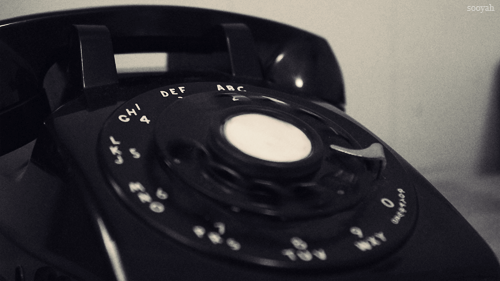
By G. Michael Dobbs
news@thereminder.com
Have you ever thought about the amount of time we used to spend in accomplishing the trivial and everyday things in life?
If you are of a certain age, you may understand what I mean.
The other day it occurred to me the amount of time it used to take to make a telephone call. I’m talking rotary phones, baby.
There was no way you could hurry a rotary phone. The device had its own pace as the dial twirled back into position for the next number.
I remember being frustrated when I messed up and had to dial all over.
Finding a number either meant looking through a telephone book – do I need to explain those? – or calling director assistance.
The rotary phone was one way that technology slowed us Boomers down. It imposed a sort of pace that one can either see today as frighteningly show or as welcomed.
We were forced to be take life and business at a different pace. Looking back, I don’t think it wasn’t all bad.
Granted relying on “snail mail” could be seen as frustrating today, but we had little choice. Remember when fax machines were introduced? I recall that having to fax documents meant finding some business that had a fax machine and being charged per page for the service.
Today a fax machine is a technology that is definitely on the way out. It’s a victim of even more immediate forms of communication.
We live in an instant world today, but that was not the world in which we were raised. Think about communications for a moment. The telephone offered immediate communications provided you were near a telephone. A telephone was a static object fixed in a place.
I remember watching “Mannix,” a 1970s detective TV show and he had a phone in his car, which was really a radio set-up. I was always amazed at such exotic technology. Today I have a phone on my person 24/7. If I leave the house without it today, I feel naked and fearful – what would I miss?
And remember for most of us, telephones were something that could be easily tied up by another member of the family or restricted by time if you used a pay phone. You could be in the middle of a call and be told to pony up more money if you wanted the conversation to continue.
Busy signals were part of the challenge of reaching someone as opposed today when you cell phone offers you a question if you want to accept an in-coming call.
“Immediate” communications at the time included AM and FM radio and television as far as news goes, but once again there was a barrier for delivery. You had to have a radio turned on and you had to be near a TV.
The technology and you were not yet married.
You want to listen to music? Turn on the radio and you would wait for the music you liked. That’s why eight-track and cassettes became so popular because they allowed you not to have to wait for your music as you had it ready to go and they were relatively portable, which record players were not.
I just realized there was three technologies mentioned in the preceding paragraph that probably need explaining to many people. Perhaps I need to develop a glossary.
Missed a movie in its theatrical run? You were up the creek. As a young movie fan, I went to see several films twice in theaters because I knew it might have been years before they turned up on TV, if they did at all.
The VCR eventually changed all that. You still had to wait though for a film to come to VHS and then to find which rental shop had it in its library.
There was more time to spend waiting.
Was that a bad thing? I’m sure young people today would be horrified at how it was so easy to “unplug.” All you had to do was to remove yourself from technology. That was as easy as getting in your car and taking a drive. You could not be reached.
There was spare time built into our lives and I think that today much of those seconds here and minutes there have been eliminated. As I get older and my own mortality looms larger and larger, on one hand I am grateful for the time that has been saved by technology. Hopefully I can use it elsewhere.
On the other hand, though, there are times that I wish to have that slower pace back now and then. The pace of modern life can be exhausting.
G. Michael Dobbs is the managing editor of Reminder Publications and Prime’s local columnist.